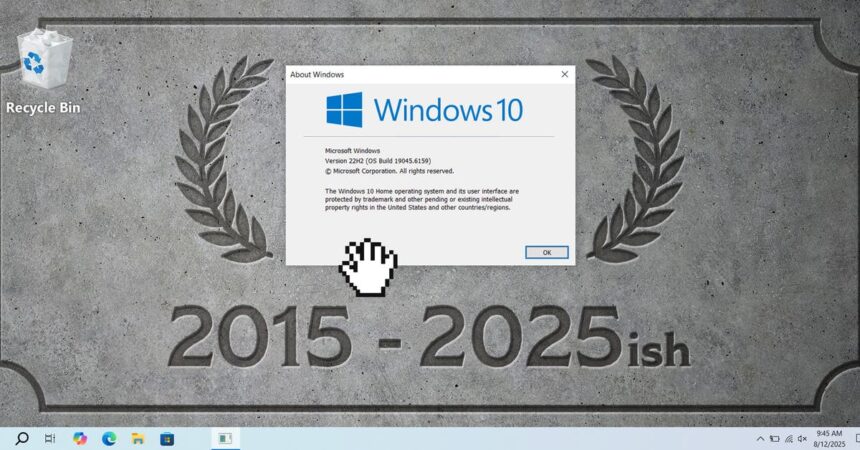If you can’t upgrade to Windows 11, but your computer still runs just fine, and you’re not ready to replace it, you can get one more year of security updates by enrolling in Microsoft’s Extended Security Updates program. Doing so can keep your computer protected from the worst vulnerabilities and will keep your computer out of a landfill for one more year.
To enroll in the ESU program, first you need to make sure that your Windows 10 computer is running the latest update and that you’re on an administrator account. Then go to Settings > Update & Security > Windows Update. Once there, click Enroll now. (If you don’t see the enroll option right away, check back in a couple of weeks — it’s rolling out to PCs at different times, and Microsoft says that it should be available for most PCs by mid-August.)
If you aren’t already logged in with a Microsoft account, you’ll be prompted to do so, and then you can choose from three options: back up your PC settings, redeem Microsoft Rewards points, or a make a one-time purchase of $30. The backup option is straightforward and free, but it requires you to sync your settings with Microsoft, at least temporarily. You may also have 1,000 Microsoft Rewards points kicking around.
Once you’ve followed those steps, the Windows Update screen will say “Your PC is enrolled to get Extended Security Updates,” which means you’ll continue to receive security updates through October 13, 2026. If you don’t want to stay signed in with a Microsoft account and don’t want to use Windows Backup, follow these steps to revert both.
The ESU program is “a step in the right direction,” said Lucas Gutterman, campaign director at the Public Interest Research Group at the time of our interview, “but it doesn’t really solve the problem.” Microsoft is offering only one year of updates for individuals, in contrast to the three-year ESU program it’s providing for businesses. “The thing that Microsoft should be doing, if they cared about the environment and sustainability and keeping their customers secure, would be just to extend support automatically, not make people jump through all these hoops just to get a year of extended support,” Gutterman said.
We asked Microsoft about the decision to make the ESU program opt-in rather than automatic. A spokesperson said: “A core principle of security is modernizing to the latest software versions.” Wirecutter’s tech experts agree, which is why we wish users were automatically enrolled in the ESU program if they are unable to upgrade to Windows 11.
On the topic of sustainability, the Microsoft spokesperson encouraged people to use trade-in and recycling programs for their old laptops — these are good options, but the best choice for the environment is to use laptops already in circulation for as long as possible.
When the year of extended updates is up, you’ll need to find another option. Many laptops that don’t support Windows 11 are more than eight years old and nearing the end of their lives anyway, whereas most PCs made after 2017 have a new-enough processor and the required security chip to run Windows 11, so it might be time to upgrade to something new.



























